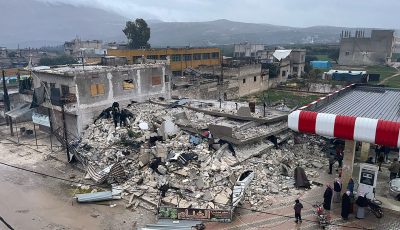New law strengthens response to domestic violence

Acting governor Victor B. Hocog signs into law House Bill 20-28 as the bill’s author, House Speaker Rafael Demapan (R-Saipan), looks on. (Erwin Encinares)
Acting governor Victor B. Hocog signed into law yesterday a bill that seeks to improve the justice system’s response to domestic violence.
House Speaker Rafael Demapan’s (R-Saipan) House Bill 20-14 enhances the punishments imposed on those found guilty of strangulation, stalking, and domestic violence.
Under what is now known as Public Law 20-28, strangulation will now be considered a felony, punishable by imprisonment of not more than seven years. Under the new law, there is no need to prove that a person intended to injure or kill the victim. The only thing required to prosecute is the intent to strangle or attempt to strangle.
P.L. 20-28 also revisited stalking, redefining it to mean action that would cause a person to fear for his or her safety or cause him or her to suffer emotional distress.
“…It shall not be a defense that the [stalker] was not given actual notice that the course of conduct was unwanted or the actor did not intend to cause the victim fear or other emotional distress,” states the law, adding that these reasons were not sufficient as a defense for stalking.
Stalking in the first degree is now a felony punishable by imprisonment of up to four years, a fine of up to $2,000, or both. Stalking in the second degree is a felony punishable by up to one year imprisonment, a fine of up to $1,000, or both.
“…Whenever strangulation is used to intimidate, terrorize, or physically abuse the victim, the chances of lethality is seven times more than [other unarmed methods],” said Maisie Tenorio, executive director of the Northern Marianas Coalition against Domestic and Sexual Violence.
“Recognizing [strangulation] in law is extremely important to make sure that we keep victims safe,” said Tenorio, adding that the new law is also beneficial to Department of Public Safety officers, who now have more tools to “keep the community safe.”
“…I want the officers to exercise accordingly and when we respond to such a call, your word would prevail,” said acting governor Victor B. Hocog in a statement.
“We [should] always put forward that we are there as a peace officer and we are there to help people, not to scare people,” he said, adding that he believes that the more officers are accepted in the community, the more officers could help.



























